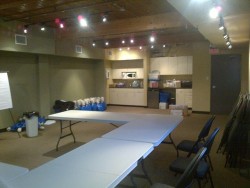Honolulu CPR is one of the top training providers of CPR courses in Hawaii. With the largest selection of available programs at the most affordable rates, Honolulu CPR is at the top of the tier when it comes to CPR training. There are total of eight CPR programs, three BLS courses, two ALS courses, and three re-certification classes. Re-certification classes allow students to renew certificates that are nearing expiry. All of these programs are certifications courses that allow trainees to become certified CPR rescuers.
Training certificates for CPR
CPR training certificates are valid for two years before they expire. If the rescuer wants to keep the training certificate valid for another two years, he or she has to sign up for re-certification before the expiration. Expired certificates are not qualified for renewal. The rescue has to take the training course again for a new certification.
Basic and Advanced Life Support

There are two categories for CPR training available, basic and advanced training. Basic training covers skill training regarding chest compressions, rescue breaths, and defibrillation. Basic Life Support is quite short compared to ALS programs; they typically take just a single four-hour session to complete. Trainees are taught how to perform CPR skills on high-end training equipment, particularly adult training mannequins, AED trainers, and bag valve masks.
- Heartsaver CPR and AED – Basic CPR and AED training program for the general public, runs for 4 hours. The course teaches trainees how to give one-person CPR to a victim of cardiac arrest. First aid and AED training is included in the program. This is an optional certification course; trainees can choose not to get certified.
- Heartsaver CPR and AED (C) – Basic CPR and AED training program for HCPs (healthcare providers), runs for 4.5 hours. It has the same curriculum as the program for the general public but tailored for HCPs.
- Basic Life Support for HCPs – This program runs for 4.5 hours and teaches one and two-person CPR and AED training to students. It includes the latest guidelines from the American Heart Association for Basic Life Support.
Advanced Life Support teaches trainees how to give medical support to a cardiac arrest victim whose spontaneous circulation has been restored by BLS. Medical support includes diagnostic exams like ECGs, medication given during a code, and use of equipment like ventilatory assist devices.
Trainees are taught about the crash cart, a movable set of drawers that contain the necessary equipment and medication used during a code. A code is called when a patient goes into cardiac arrest. Codes are typically seen in a hospital or a similar clinical location.
- Advanced Cardiac Life Support – This advanced program is for HCPs and runs for two days, 16 hours total. It teaches trainees how to give medical support to an adult victim. Re-certification is available for this program and runs for five to six hours.
- Pediatric Advanced Life Support – This advanced programs is HCPS and runs for two days as well, but shorter at 14 hours total. Unlike ACLS which teaches trainees how to manage adult victims, PALS is about the management of pediatric patients.
